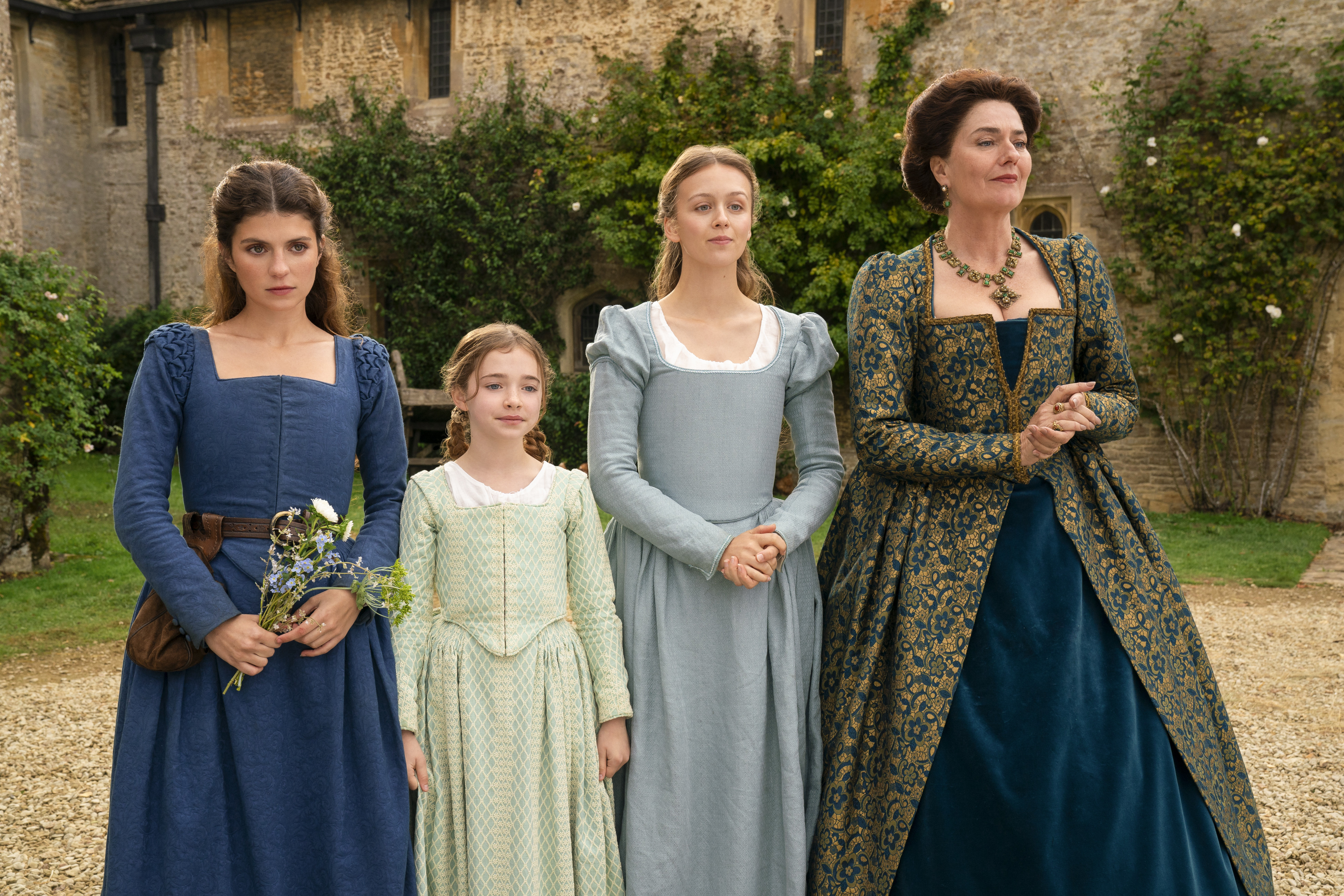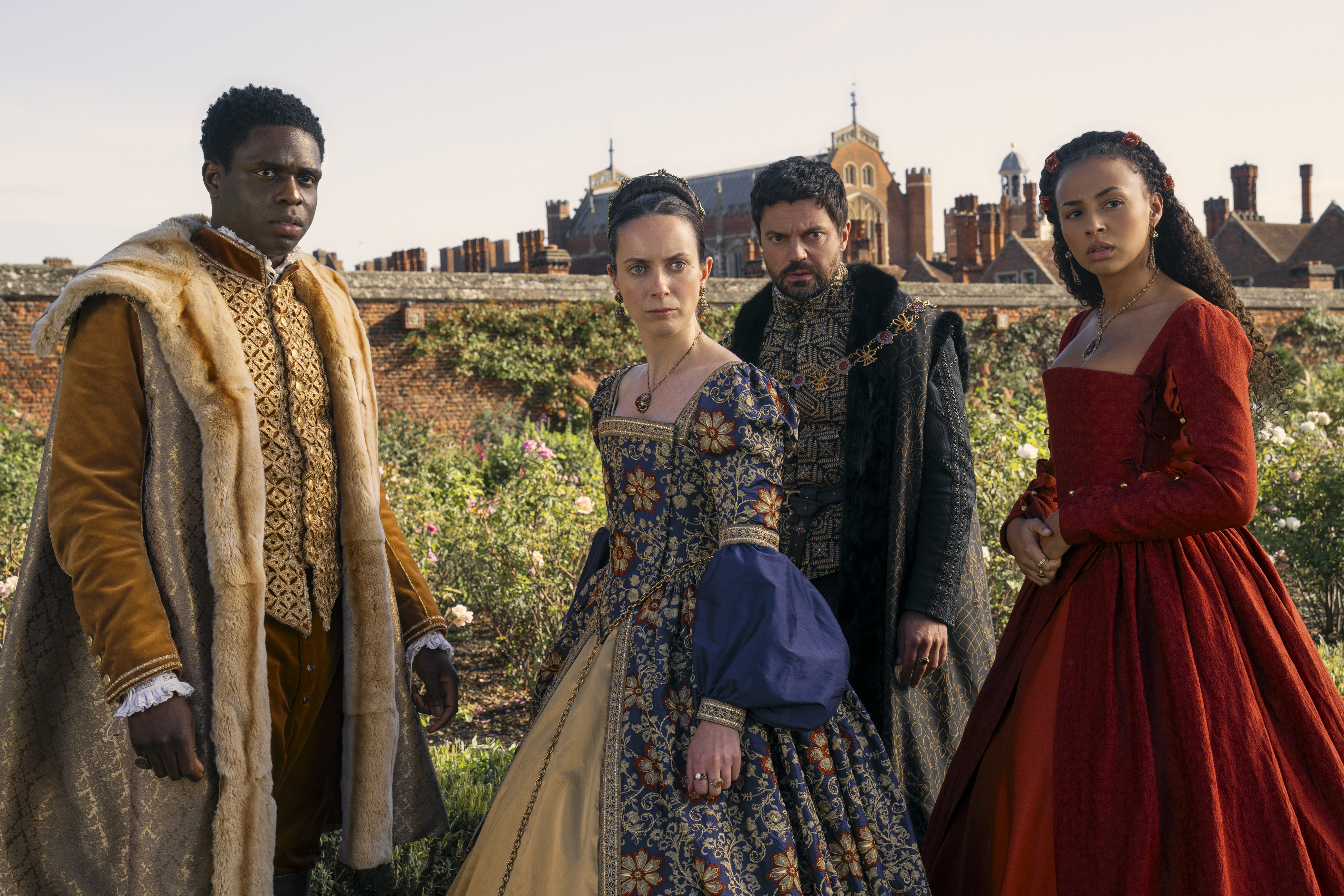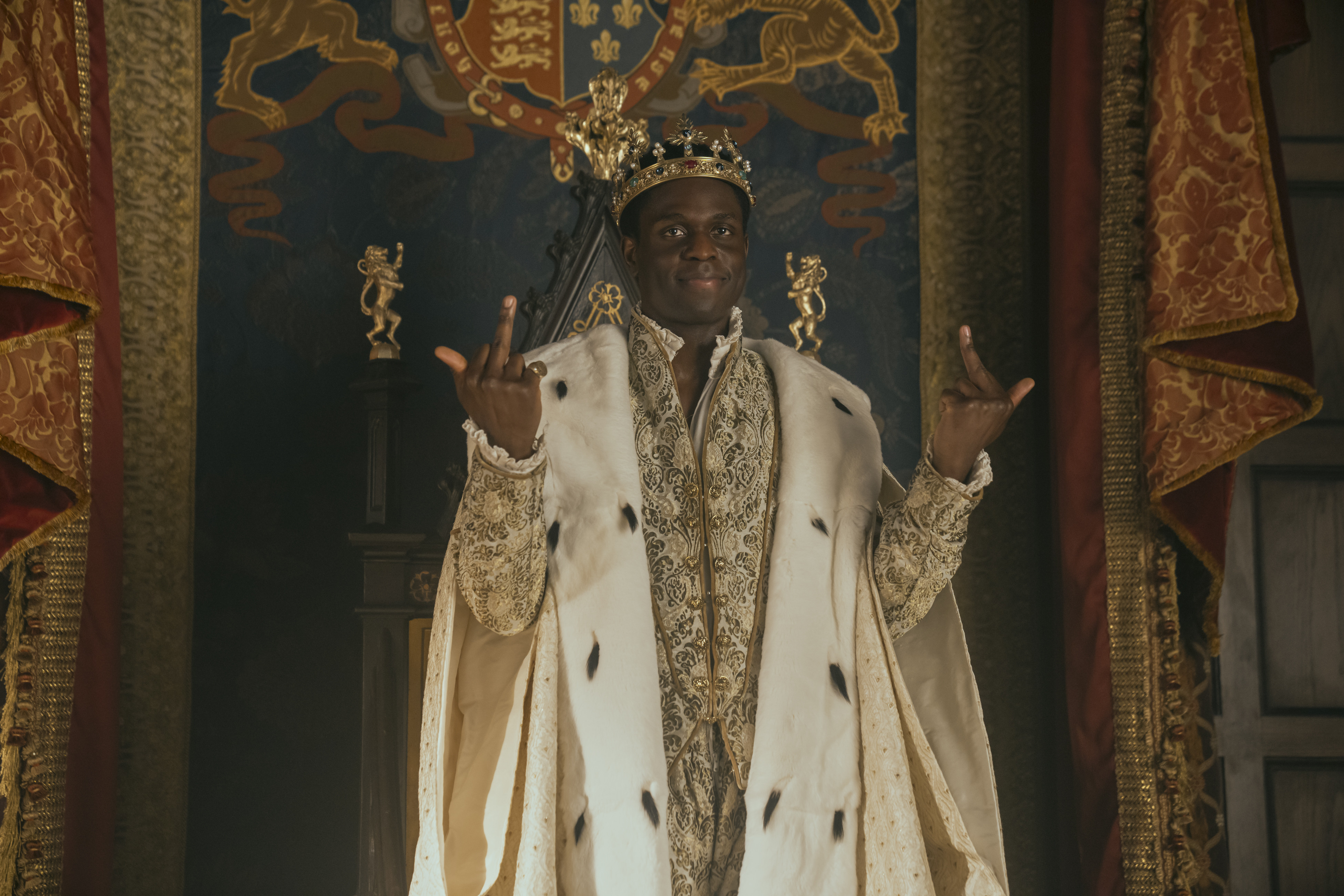
My Lady Jane is now on Prime Video and the historical drama is almost definitely not what you're expecting!
It's an irreverent, funny, reimagining of what would have happened if Lady Jane Grey had stayed queen instead of being beheaded after just nine days as monarch.
The show is based on a series of New York Times bestselling books by Cynthia Hand, Brodie Ashton and Jodi Meadows and tells the story of a fiery young woman Lady Jane, who's determined to be independent at a time when women really weren't supposed to be!
Oh, and she just happens to be crowned Queen of England, too! The show is a fast-paced, hilarious reworking of history said to be inspired by Bridgerton and The Princess Bride. But the real story of Lady Jane Grey is a much more somber affair. Here's the lowdown.
The young king
In 1553, young Edward VI was king. He'd become the monarch when he was just nine years old after the death of his father, Henry VIII.
Edward's mother was Jane Seymour — the third wife of Henry VIII — and by 1553, Edward was 15 and a committed Protestant.
When he became ill, his advisors were worried his death would mean England going back to becoming a Catholic country as it had been before Henry VIII created the Church of England.
Edward's oldest sister, Mary (daughter of Henry's first wife, Catherine of Aragon), was next in line to the monarchy.
But she was a devoted Catholic just like her mum had been. So Edward and his team knew that if he died and Mary became queen, things in England would change.
What to do? Well, Edward had an idea.

Who was Lady Jane Grey?
Lady Jane Grey was Edward's cousin. Her grandmother, Mary Tudor, was the sister of Henry VIII. She had lived for a while in the Seymour household — guided by Thomas Seymour (Edward's uncle) and his wife, Katharine Parr (who was Henry VIII's widow).
Thomas wanted Edward and Lady Jane to marry and Katharine made sure Lady Jane was educated and cultured, as a future queen should be.
Sounds good so far, right? Hmm.

Protection racket
When Edward became king as a child, he was given a protector. And that job went to Edward Seymour, Thomas's younger brother. Thomas wasn't happy about it.
In fact, a few people weren't happy about it, because Edward Seymour used his position for his own advantage. Wanting to change things, Thomas Seymour broke into the king's apartment to speak to him. But obviously he got caught, was sent to the Tower of London and beheaded. Oops!
Meanwhile, Edward Seymour was making a big old mess of everything, had almost bankrupted the whole country and had made a lot of enemies. So he was executed too.

Surprise!
King Edward got a bit cocky after that and with the help of his new advisors, decided to make sure the country stayed Protestant after his death — which was looking to be sooner rather than later because he was quite a sickly chap.
He drafted something called his Devise to Succession, which was quite vague at first. But when he realized he was terminally ill, he made it water-tight and named his cousin Lady Jane Grey as his heir.
Edward died in July 1553. Lady Jane was brought to London and told she was going to be queen.
Except that was the first poor Lady Jane had heard of it. She was bewildered and upset and basically did NOT want to do the job.
But, obviously, she didn't really have a choice. She eventually calmed down and she was crowned queen the very next day. However, she still refused to wear the crown.

Army approaching
Meanwhile Mary — Henry VIII's daughter — was very put out that she wasn't queen. She wrote a letter demanding to be crowned, which everyone ignored, basically telling her to be quiet.
But Mary was popular and she had a lawful claim to the throne. So Lady Jane's team started to get an army together, just in case...
Mary had loads of support. She got an even bigger army together, marched to London and on 19 July 1553, she was proclaimed queen. Lady Jane had been queen for just nine days.
Traitor!
As soon as he realised what was happening, Lady Jane's dad legged it to Mary and declared his loyalty to her instead of his daughter (nice work, dad). Her mum did the same (seriously!).
Poor Jane was abandoned by her family, shoved in the Tower and tried for High Treason in November 1553. She was sentenced to death, but Mary wasn't convinced it was the right thing to do, so she let Jane remain at the Tower as a prisoner.
In the months that followed, though, there were several Protestant uprisings. They didn't want to put Jane back on the throne but because Jane's dad was involved in one of them, Mary thought it was too dangerous to let her cousin live.
She told Jane she would be spared if she would convert to Catholicism. Jane refused.
She was executed in February 1554 when she was just 17 years old.
With a story that dramatic — and sad — it's going to be hard for My Lady Jane to match it. But, knowing what smash-hits the books have been, this is a show that is definitely worth watching!
For more information on Jady Jane, visit Royal Historic Palaces and BBC History. All eight episodes of My Lady Jane are available to watch on Prime Video now.







